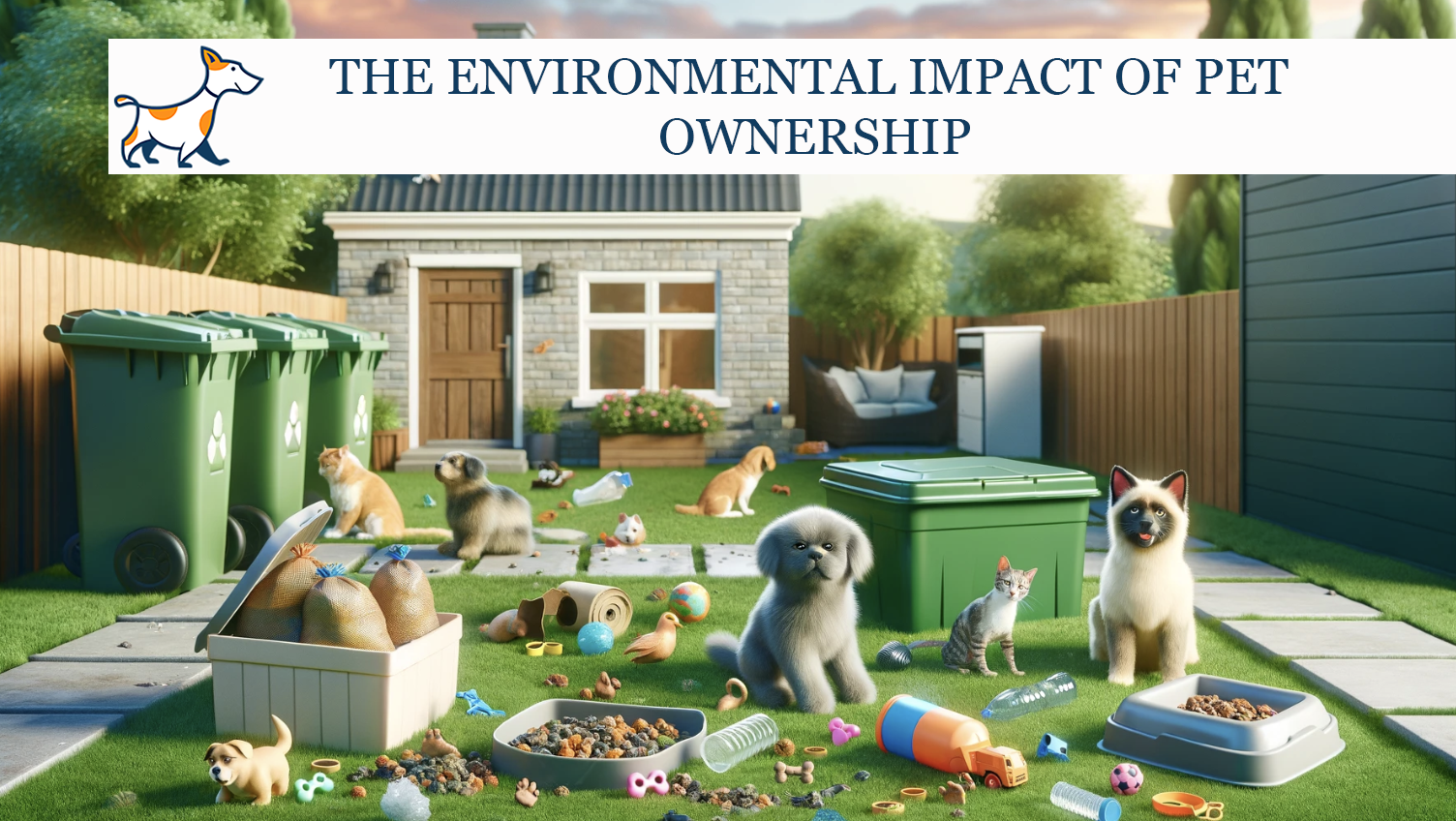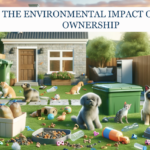While pets 🐾 bring joy 😁 and companionship to our lives, it’s important to recognize the environmental impact associated with pet ownership 🌍. From the food they eat 🍖 to the waste they produce, pets can contribute to environmental issues in various ways 🐕🦺. Let’s explore these impacts and discover how we can make more sustainable choices 🌱.
• Pet food 🥩 production, particularly for meat-based diets, requires significant land 🌳, water 💧, and energy ⚡ resources. This production contributes to deforestation 🌲 and greenhouse gas emissions 🌫️. For example, the meat industry, which provides the protein in many pet foods, is a major driver of habitat loss and climate change 🏭.
• 🗑️ The disposal of pet waste, if not properly managed, can contaminate water sources 🌊 and contribute to pollution 🚮. Pet waste can carry harmful bacteria and parasites 🦠 that may enter waterways, affecting both human and animal health 🏥. Using biodegradable poop bags 🛍️ and composting pet waste can reduce this impact.
• 🐕 Pets can also have a negative impact on local wildlife populations 🦉 through predation and habitat destruction 🏞️. Cats 🐈, in particular, are known to hunt birds 🐦 and small mammals 🐁, which can lead to declines in local species. Keeping pets indoors or supervised can help protect wildlife 🌿.
• However, responsible pet ownership 🐶, including choosing sustainable pet food options 🌿, properly disposing of waste 🚯, and spaying/neutering pets 🏥 to reduce overpopulation, can help mitigate these environmental impacts 🌟. Opting for pet foods with sustainably sourced ingredients and minimal packaging can further reduce the ecological footprint 🌐.
• By raising awareness 📢 of the environmental impact of pet ownership and promoting sustainable practices, pet owners can play a role in preserving the planet 🌏 for future generations 🌼. Educating fellow pet owners and advocating for environmentally friendly products and services can create a larger positive impact.
• In addition, using eco-friendly pet products 🧴, such as biodegradable toys 🧸, natural grooming products 🛁, and sustainable bedding 🛏️, can further reduce the environmental impact. Supporting companies that prioritize sustainability 🌍 and ethical practices can drive the market towards more responsible production methods.
• Engaging in activities like community clean-up events 🧹, where pet owners gather to clean parks and other public spaces, can also promote environmental stewardship and strengthen the community spirit 💪.
In conclusion, while pets bring immense joy and fulfillment to our lives 🐾, it’s crucial to acknowledge and address their environmental footprint 🌿. Through mindful choices 🧠 and responsible practices, pet owners can minimize the negative impact of pet ownership on the environment, ensuring a more sustainable future for all 🌏🌟. By integrating sustainable habits into our daily routines and advocating for larger systemic changes, we can all contribute to a healthier planet 🌱. The love we have for our pets can extend to the care we take in protecting the environment they, and we, live in 🌸💚.


